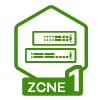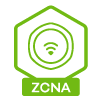WAX650S power mode and antenna
Comments
-
Currently I'm running our WAX650S on a GS1920-24HPv2 with PoE+. The configuration is forced to full power. On the status page that is confirmed (shows a star on the status page). According to the GS1920 the power used varies between 10 and 15W. Nowhere near 30W. There are 20 to 25 wifi clients connected, most use 802.11n and 802.11ac.
When I look at the AP Information the transmit power is 18 (dBm) which is almost right on the value set by regional regulators But I cannot determine what antenne configuration is actually in use, 2x4 or 4x4 on both 2.4 and 5GHz. I'm still going through the diagnostic files (have almost no documentation about that)
I'm trying to find why eight 5GHz devices (HomePod mini's), which connect with 802.11n 20MHz mode (72Mbps), can hog the network utilisation over 80% while the WAX650S is set to 80MHz mode. This happens when there's a multicast of barely 3Mbps to all these devices. It slows the network significantly. There should be enough bandwidth left or am I wrong here?
0 -
Hi, @PbeeThanks for consulting Nebula Support!Since multicast and broadcast packets transfer at a low rate, which would cause airtime then impact the throughput.Could you kindly help us to use DCS and turn off DFS Aware to make the channel selection more options to select?And lower the channel width to avoid interference.Please help us to observe after you have done the settings,Thank you.Best Regards,HsinBo
Zyxel_HsinBo
0 -
Those settings are already in effect. DCS is off and DFS is off (as far as regulations allow).
On 2.4GHz its limited to 20MHz due to the fact that there are too many other neighbouring AP's, and most annoying they all use the American default channel 6 or 11 instead of the international 4-channel deployment setting. We now use channel 9, but this band is only used for 4 IoT devices that cannot connect to 5GHz. The multicast setting is set to fixed 2Mbps. Intra-BSS Traffic blocking is enabled on the network on the SSD. With only 4 clients connected, the utilisation reported is 9%
On 5GHz, which is the main network, is set to channel 52 (80MHz). This channel group seems to be avoided by neighbouring AP's. Most of them use the lower channels outside DFS. Usually we experience no disconnects or frequent DFS events. The multicast setting is set to fixed 6 Mbps. No Intra-BSS Traffic blocking here.
Most small devices use 802.11n on this band, Phones and MacBooks' use 802.11ac. I've seen only one use 802.11ac-MU once.
I've done some testing with audiostreaming. Since the network is actively in use, I can't change every network parameter every hour, so I've done some simple testing:
Test situation: 5 HomePod mini's, two pairs and one single HomePod. So 5 devices in total.
Test 1:
First pair HomePod streaming directly to the others (Airplay2), results in a utilisation value of 80% on 5GHz.
Test 2:
Mac iTunes (Airplay1) streaming from ethernet to all HomePod mini's. Utilisation value: 30-50%.
Ethernet measures about 2MB/s throughput.
Test 3:
iPhone Music (802.11ac) streaming (Airplay2) to the all HomePod mini's. Utilisation value: starting at 78% on each song, eventually failing playback.
So question remains, how can I find out which antenna mode the WAX650S is using? Its unclear if 802.11n devices like the HomePod mini really benefit from the 4x4 array - it doesn't seem like it.
Firmware in use: V6.40(6) / 2022-07-14 03:15:29
HomePod: v15.5
0 -
Hi, @Pbee
May we know if the WAX650S is managed by the controller?
If yes, please select the multicast to unicast options in the 5G radio transmission mode setting or adjust higher the fixed multicast rate with the value of 12mbps.
Observe whether the symptom still exists or not after you have done the changes.
If it still having issues with audio-streaming,
Please help us to collect the diagnostics “when the symptom happens“ from the below path and provide us with the issue happened time and devices mac addresses:
Left sidebar “MAINTENANCE” >> Diagnostics “AP” >> move the WAX650S to the selected AP section >> Collect Now.
Wait until the progress is finished (about 15 minutes ) then download the file and send it to us by private message.
We’ll look into the symptom soon as possible.
Thank you.
Zyxel_HsinBo
0 -
Hi,
At this moment the WAX650S unit is in stand-alone mode for this network. It is connected to a GS1920-24HPv2.
There was not much difference noticeable when the "multicast to unicast" option was enabled before I did that last test. But I'll try the 12Mbps option later this week.
Until then. Thank you.0
Categories
- All Categories
- 441 Beta Program
- 2.9K Nebula
- 208 Nebula Ideas
- 127 Nebula Status and Incidents
- 6.4K Security
- 529 USG FLEX H Series
- 333 Security Ideas
- 1.7K Switch
- 84 Switch Ideas
- 1.3K Wireless
- 51 Wireless Ideas
- 6.9K Consumer Product
- 292 Service & License
- 461 News and Release
- 90 Security Advisories
- 31 Education Center
- 10 [Campaign] Zyxel Network Detective
- 4.7K FAQ
- 34 Documents
- 86 About Community
- 99 Security Highlight
 Admin
Admin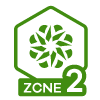
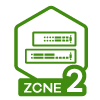
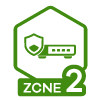
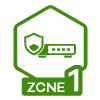
 Freshman Member
Freshman Member



 Zyxel Employee
Zyxel Employee